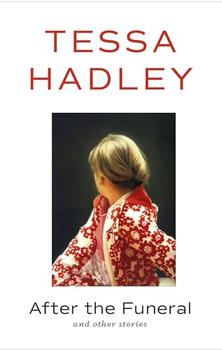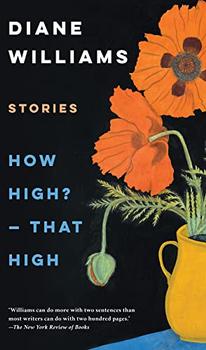Summary | Excerpt | Reviews | Beyond the book | Read-Alikes | Genres & Themes | Author Bio

Selected Stories
by Edna O'BrienEdna O'Brien's The Love Object is more than a short-story collection, it's an encyclopedia of perfect storytelling and a retrospective on the fifty-year career of a writer of exquisite finesse and pathos. While submerged in these stories, I happened on the famous quote from the 17th century philosopher Blaise Pascal: "I would have written a shorter letter, but I did not have the time." O'Brien has taken a great deal of time over these small works of art. They are finely wrought pieces with vivid details, sparingly rendered. The sentences are buffed to a polish, the symbolic images (a green georgette evening gown, a mossy cave, an undercooked fowl) so finely worked, their seams are invisible.
The Ireland stories are at the heart of the collection, set on rural Irish farms and in small villages in the first half of the twentieth century. A block of these appears at the start, so that when the tales begin to expand to other settings, and to grow nostalgic for the lost Ireland of the past, we as readers can access that nostalgia too. "A Scandalous Woman" follows the trials of a girl named Eily, who has had the misfortune to grow into a beauty. In a tight-knit village where gossip does the church's police work, a girl like Eily can become a scapegoat. In such a world, there is no such thing as privacy, and a family's joys and misfortunes are always up for review. In "The Connor Girls" the village gets into a lather when one of the daughters of a rich Protestant gets engaged to a Catholic. The villagers think it is their moral right to know the details, to the point that "A local person...thought of fitting up a telescope to try and see into the parlor."
Thematically speaking, the "love object" of the title covers a wide spectrum of adoration and entanglement. In the story "The Love Object," a divorced woman is having an affair with a famous, married man. Here, as in many of the other stories, the beloved man is a powerful being who can bring joy and misery in equal measure, although the misery seems to last longer than the joy. But there are many other "love objects" on view. In "Sister Imelda" a bond forms between a nun and her pupil, and in "The Mouth of the Cave" a random stranger becomes an object of fascination. The love of a child for its mother is beautifully explored in several stories. In O'Brien's world, the mother/child relationship is the first experience with a "love object", and can be just as devastating as any other love affair. One of my favorite stories in the collection, "The Rug" captures the way a child both adores her mother and learns from her what suffering life can bring to a woman. The mother has received an unexpected present in the mail, a black sheepskin rug, a luxurious and rare treat. "Though she was always hoping," the narrator remarks as she watches her mother admiring the rug, "she never really expected things to turn out well. At nine years old, I knew enough about my mother's life to say a prayer of thanks that at last she had got something she wanted."
As the stories begin to range farther afield from rural Ireland, they follow the trajectory of O'Brien's own life, taking characters abroad to warm vacation spots (Italy in "Paradise", or Brittany in "Mrs. Reinhardt") or to big cities (London, Dublin, New York), where a rural Irish past is still in the background. At the same time the sexual revolution is dawning, and the women in the stories are undergoing a sea change from the repressive religious culture of the early part of the century to a culture where love affairs are fairly central to life. Female desire and bedroom politics are unflinchingly examined in a way that was radical at the time (as in the story "The Love Object", originally published in 1968). As the stories draw closer to the present day, sex is taken more for granted and issues of identity and connection inhabit the foreground, as does nostalgia for what has been lost ("Lantern Slides" , "Shovel Kings"). As young Mary learns in "Irish Revel" the first time she's invited to a party in the village, home looks very different once you've been away. In Edna O'Brien's universe, there is no permanence in human affairs, no security in love or family. Pain and loss are always around the corner. In The Love Object, characters devolve into heavy drinking or turn, as O'Brien has, to storytelling. Even when love fades, the stories live on.
![]() This review
first ran in the May 13, 2015
issue of BookBrowse Recommends.
This review
first ran in the May 13, 2015
issue of BookBrowse Recommends.

If you liked The Love Object, try these:

After the Funeral and Other Stories
by Tessa Hadley
Published 2024
A masterful collection of stories that plumb the depths of everyday life to reveal the shifting tides and hidden undercurrents of ordinary relationships.

by Diane Williams
Published 2022
Diane Williams, an American master of the short story who will "rewire your brain" (NPR), is back with a collection in which she once again expands the possibilities of fiction.
Your guide toexceptional books
BookBrowse seeks out and recommends the best in contemporary fiction and nonfiction—books that not only engage and entertain but also deepen our understanding of ourselves and the world around us.